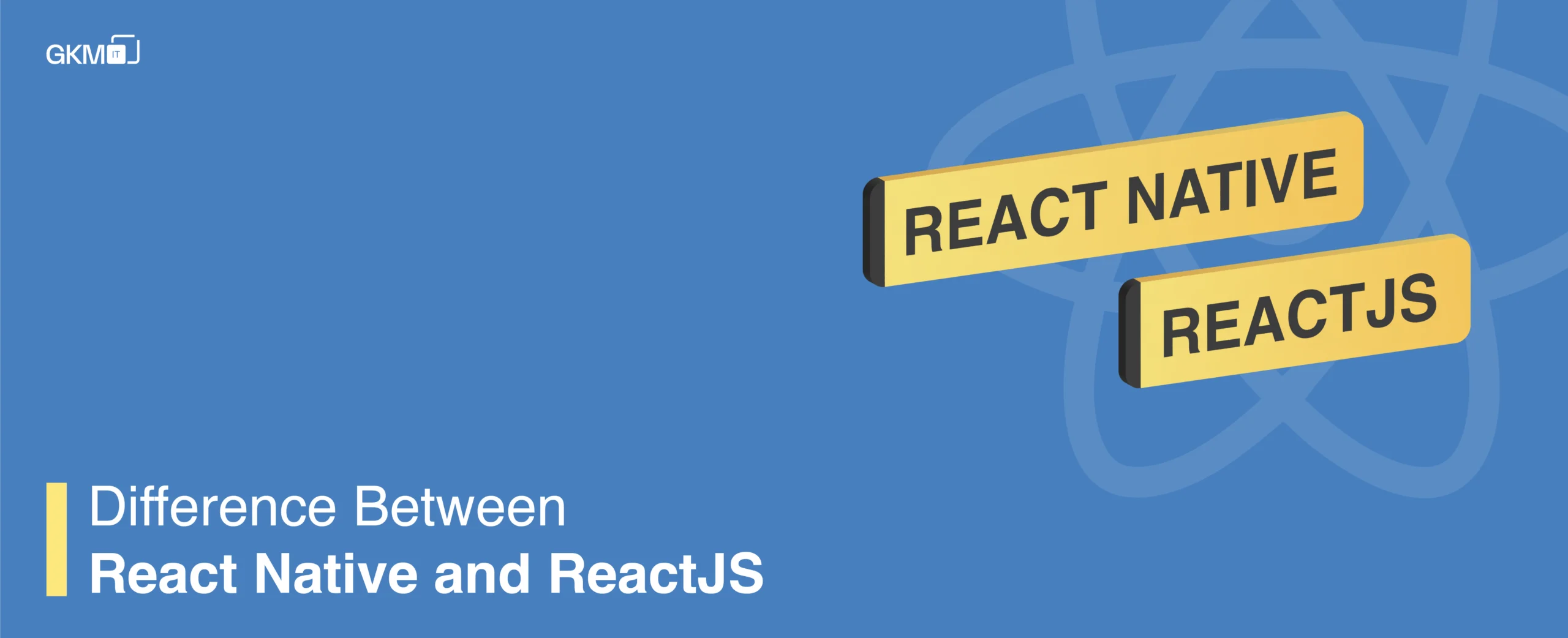
Difference Between React Native and ReactJS
Key Differences Between React Native and ReactJS
As we all know, React Native and ReactJS, introduced by Facebook, are very popular technologies for web and mobile development. To stimulate a more comfortable user experience and simplify the development process, Jordan Walke, a Facebook engineer, created a library. This library allows the building of a web interface with JavaScript.
In this blog, we will explain the difference between React Native and ReactJS and the business benefits of both technologies.
Understanding ReactJS and React Native
ReactJS

The major difference to be highlighted is that ReactJS, or React, is a JavaScript library used for creating user interfaces for web apps. It is created and maintained by Facebook. This open-source library is designed to process data in real-time on dynamic web pages. It does not require extra effort in reloading and works exactly like Facebook/Instagram news feeds. This supports both the front-end and server-side development.
React Native

On the other hand, React Native is a framework that consists of native libraries and helps in creating mobile applications. It is a cross-platform framework for developing applications. Also, React Native codes are used in native mobile app components, making it highly efficient for mobile development.
I hope now it is easy for you to differentiate between the two. The simple thumb rule is that ReactJS is for web development, and React Native is for mobile app development.
Business Benefits of ReactJS
Let’s discuss the business benefits of working with ReactJS:
- Reusable code saves a lot of time.
- Developers can work faster by using the virtual DOM (Document Object Model) in ReactJS, which enhances the user experience. React’s virtual DOM is faster than the conventional full refresh mode, improving programming speed and performance.
- From server to browser rendering of pages, SEO ranking is also improved, making ReactJS beneficial for Front-End Development Services.
- Improves debugging speed and brings ease to developers’ lives.
- Readable for those unfamiliar with React. Unlike other frameworks, you don’t need to learn an extensive list of concepts.
- Leverages advancements in JavaScript language.
Business Benefits of React Native
Let’s discuss the business benefits of React Native:
- Certain code components with native APIs are yielded by React Native. With the use of native modules and components, performance is improved.
- React Native benefits from all ReactJS advantages, as the major focus of ReactJS is on improving UI.
- React Native developers can use the common logic layer and don’t need to build applications separately for iOS and Android.
- Enables developers to create apps with a more agile and web-style approach to development.
- If a developer is proficient in JavaScript, React Native will be easy to pick up. Most front-end developers can transition into mobile development by learning platform APIs, native UI elements, and platform-specific design patterns.
- No need to rewrite existing applications; developers can add React Native UI components to an existing app’s codebase.
- Native development can be inefficient, with slower deployment time and less productivity. React Native brings high speed, responsiveness, web app development agility, a better user experience, and efficient processing.
Choosing the Right Technology
Choosing between ReactJS and React Native depends on your business needs. If you are focused on web applications with dynamic, high-performing, and responsive interfaces, ReactJS is ideal. If you are looking for a Mobile App Development Service, React Native provides a truly native mobile experience.
Conclusion
As discussed above, the technological differences and business benefits make it clear that ReactJS is a web app-building framework that uses JavaScript, while React Native is used to build native, cross-platform mobile apps. ReactJS helps construct a high-performing UI layer and React Native leverages ReactJS principles, making the learning curve easier.
If you are still confused between the two, the GKMIT team will help you clear your doubts and queries. Feel free to contact us!